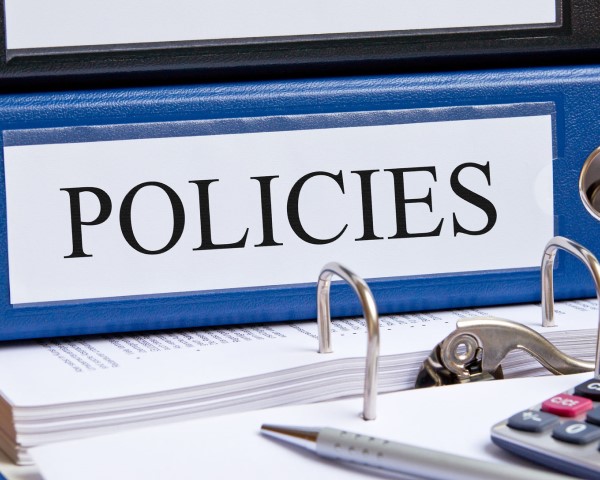
How to Register Trademarks and Copyrights
Registering trademarks and copyrights provides additional protection for your business’s intellectual property. You can hire a lawyer to research and register trademarks and to register copyrights, or you can tackle the process yourself.
Here’s a brief overview of trademarks and copyrights and how to register them.
Registering Trademarks
A trademark is a word, a phrase, a design, or a symbol (or a combination of these items) used to identify the source of a product or service and distinguish it from competitors’ products. You may have a trademark in your brand name, the name of a product, a logo, a tagline, or product packaging.
You can get a weak form of trademark protection in your local area just by using your mark in your business, or by registering it with your state. To get stronger, nationwide protection, you can register your mark with the U.S. Patent and Trademark Office (USPTO). However, federal trademark registration is not automatic––you’ll only be able to register your mark if it is unique and not confusingly similar to another registered trademark.
A trademark lawyer can help you research trademarks and prepare an application that has a good chance of success in the registration process. If you decide to handle the application yourself, be sure to carefully read through the educational materials on the USPTO website.
Here’s how the registration process works. Before attempting to register a trademark, you’ll need to conduct a trademark search to find out if the trademark (or a confusingly similar one) is registered to someone else. If someone else has already registered your trademark for similar goods or services, your application will be denied, and you will not get your filing fee back. You can search trademarks on the USPTO website.
Next, you will file the following with the USPTO:
- An application with contact information, the nature of your business, and a listing of the goods and services your business provides. The USPTO has an electronic application system called TEAS.
- A drawing (digital image) of the mark you wish to register. A "mark" can be a word, phrase, design, image, etc. - whatever you wish to trademark.
- A digital image showing how the trademark is used (such as a label or package).
- The filing fee, currently $350 per class of goods or services for a standard electronic application.
Your application is then reviewed, and you may receive a letter from the USPTO (known as an Office Action) describing problems with your application or seeking more information. You must respond to an Office Action by the deadline specified in the letter. If you are granted a trademark, you can use the "registered" symbol ( ® ) beside your trademark. (While your application is under review you can use the "trademark" symbol ( ™ ).
For more information about trademarks, and to apply for a trademark online, visit the USPTO atwww.uspto.gov.
Registering Copyrights
Copyright is automatically granted when a work is created. You’re not required to register your copyrights with the U.S. Copyright office, but registering has several important advantages:
- When you register a copyright, you establish a public record of your copyright ownership.
- You must register your copyright before filing a lawsuit for copyright infringement.
- If you sue someone for copyright infringement, you can recover additional money and your attorney fees if you registered your copyright within three months of your work’s publication or before any infringement occurred. This additional money, called "statutory damages," can be as much as $150,000 for each piece of work infringed, and you avoid the difficult task of proving the exact amount of your loss in court. Without statutory damages, copyright owners are limited to recovering the amount of their actual loss or the profits earned by the infringer.
- Copyright law requires certain copyright owners to deposit two copies of published works with the Library of Congress within three months of publication. Registration fulfills this requirement.
- A registered copyright can be recorded with the U.S. Customs Service. This helps to protect you if someone tries to import infringing copies of your work.
The exact procedures for registering a copyright vary depending on the type of work you are registering. However, all copyright registrations require three things:
- A completed application. You can submit your copyright registration form online or you can submit a paper form. For many registrations, the copyright office prefers online fining
- A filing fee. As of 2021, the filing fee is $45 for a single author who is the only claimant to a work that is not a work for hire, and $65 for all other works. Registrations using paper forms cost $125.
- Copies of the work you are registering. Depending on the type of work you are registering, you may be required to submit either one or two copies of the work, and there may be other specific submission requirements. Details on how to submit your work are available on the copyright office website.
Filing an application online through the U.S. Copyright Office’s Electronic Copyright Office, or ECO, offers several advantages over mail registration:
- Lower filing fee
- Faster processing time.
- Online status tracking.
- Secure payment through credit or debit card, electronic check or Copyright Office deposit account.
- Ability to upload certain types of deposits directly into the Copyright Office account as electronic files.
Further information about copyright registration is available at the U.S. Copyright office website, http://www.copyright.gov.

 How AI Can Help Your Business
How AI Can Help Your Business